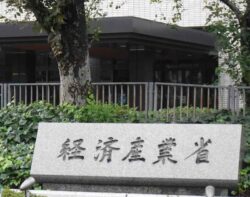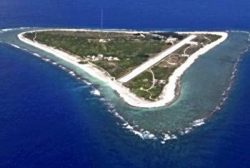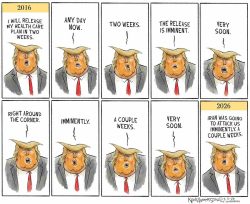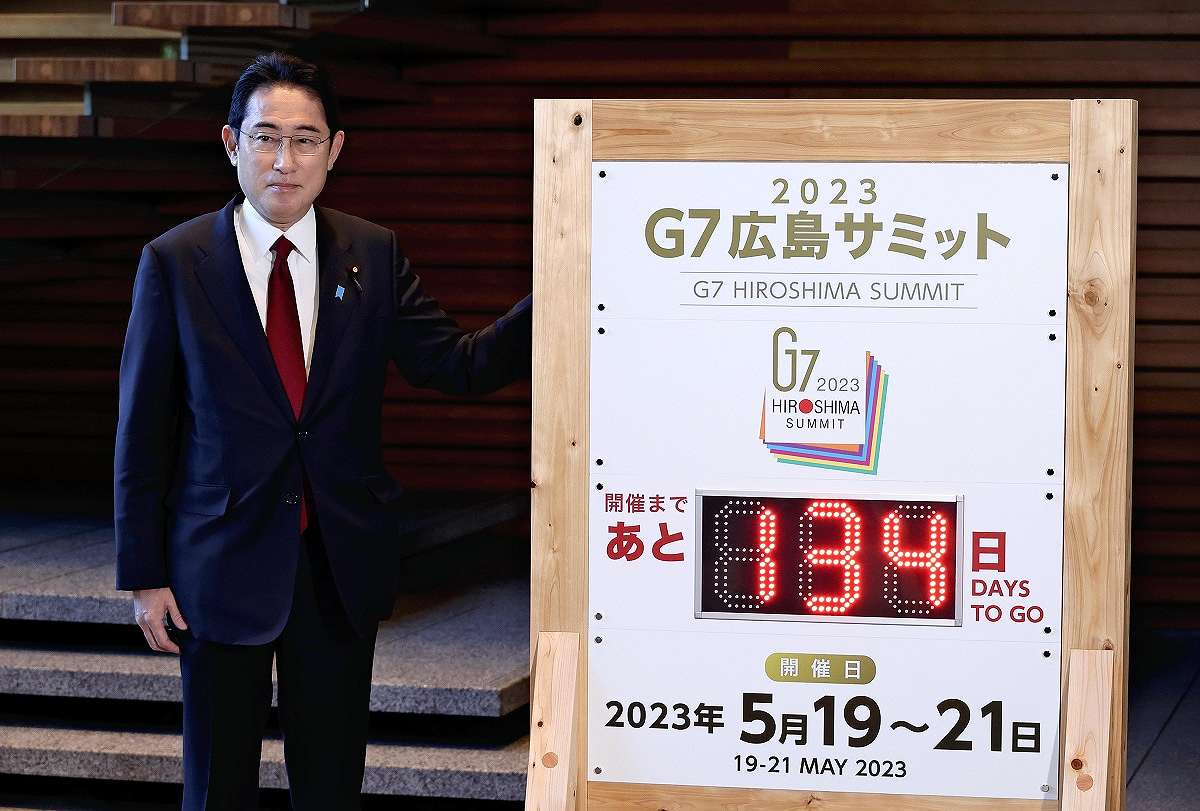
Prime Minister Fumio Kishida attends a Jan. 5 ceremony at the Prime Minister’s Office to activate a countdown board for the G7 summit to be held in Hiroshima in May.
8:00 JST, January 28, 2023
Japan will play a leading role in the Group of Seven this year, having assumed the presidency of the group on Jan. 1. Earlier this month, Prime Minister Fumio Kishida visited G7 members Canada, France, Italy, the United Kingdom and the United States. The prime minister is committed to reestablishing the G7 as a community of values. “A few years ago, the G7 was said to be obsolete, but as we enter this turbulent era, we can say again that the G7 is one of the few frameworks that is functioning,” Kishida said in a speech on Dec. 26, 2022. As Kishida noted, the G7 has stood the test of time.
Critics have been skeptical that the G7 can still play a major role as emerging nations accrue their own power on the world stage. For example, the Group of 20, which includes China, Russia and other emerging countries, began holding summits in 2008 as a response to that year’s global financial crisis. In 2009, the member nations agreed that the G20 would be the premier forum for international economic cooperation. The G20’s rising profile during the administration of U.S. President Barack Obama began to cast doubts on the G7. Obama’s successor, Donald Trump, even questioned the meaning of the G7’s existence, telling reporters in May 2020: “I don’t feel that it properly represents what’s going on in the world. It’s a very outdated group of countries.” At that time, the U.S. was the host country of the G7.
The G7 is made up of seven of the world’s largest economies: Canada, France, Germany, Italy, Japan, the United Kingdom and the United States. The G7 is also committed to the values of democracy, freedom and the rule of law. Japan has been the group’s only Asian member since its establishment in 1975 and has always attached great importance to the G7 even during shifts in the international situation. Russia joined in 1998 — making it the G8 — but was expelled in 2014 for its takeover of Crimea.
The G7 had an opportunity to increase its presence on the global stage when Russia invaded Ukraine in February of last year. Russia is a permanent member of the U.N. Security Council as well as being in the G20. Because of this, the Security Council and the G20 both face difficulties in dealing with the invasion because of Russian objections. Consequently, the G7 has been the grouping to lead the sanctions campaign against Russia. Kishida recognized the importance of the G7 and decided to impose strict sanctions alongside other G7 members immediately after the invasion.
These actions constitute a major reversal of Japanese statecraft toward Russia. Previously, Japan sought to avoid taking sides when Russia annexed Crimea because of signs of progress in peace treaty negotiations with Russia at the time. A senior Foreign Ministry official told me that, if the prime minister had chosen an approach like the one taken in 2014, the international community might have viewed the fight against the Ukraine invasion strictly as one between NATO and Russia. Japan’s participation in the sanctions campaign transformed the fight to a truly international one. Kishida told a close aide that Japan was a member of the G7 and would therefore apply strict sanctions because of the drastic changes in the international community since 2014.
A second reason exists for Japan’s emphasis on the G7: China.
China poses the biggest challenge to Japan. If China attempts to absorb Taiwan by force, Japan will face a crisis. Japan will have no choice but to rely on the G7 if a Taiwan emergency erupts. Kishida has repeatedly noted that what happens in Ukraine today may happen in East Asia tomorrow. At the press conference ending his trip, Kishida said that he shared his strong sense of impending crisis regarding the security environment in East Asia with the G7 leaders.
Kishida’s trip also included a policy speech at the Johns Hopkins University School of Advanced International Studies (SAIS) in Washington. Kishida told the audience, “Now that the world is becoming increasingly divided and chaotic, what is crucial is ‘who we are’: The G7 is tied together on the basis of common values, and this is the group having functioned most effectively in the aftermath of Russia’s aggression against Ukraine.”
Kishida will host the G7 Summit this May in Hiroshima. In his SAIS speech, Kishida declared, “I will demonstrate the G7’s determination with a weight that reflects the historical significance.”
The prime minister emphasized four points. First was the need to resolutely reject Russia’s ongoing armed aggression, threats to use nuclear weapons, and attempts to overthrow the international order. Second was the importance of providing Ukraine with unwavering support. Third was the rejection of any unilateral changes to the status quo by force in any region. The fourth and final point was the need to firmly preserve the rule of law and a free and open international order.
The world will watch how the G7 navigates the invasion of Ukraine, especially given that no end is in sight. Former Japanese Ambassador to the United States Kenichiro Sasae said in an interview with The Yomiuri Shimbun, “The focus will be on whether Japan can demonstrate leadership in dealing with various issues and create a common strategy among the G7.” The consequences might be significant and could affect China’s posture toward Taiwan. For this reason, Japan must continue to promote the steadfast unity of the G7.
Political Pulse appears every Saturday.
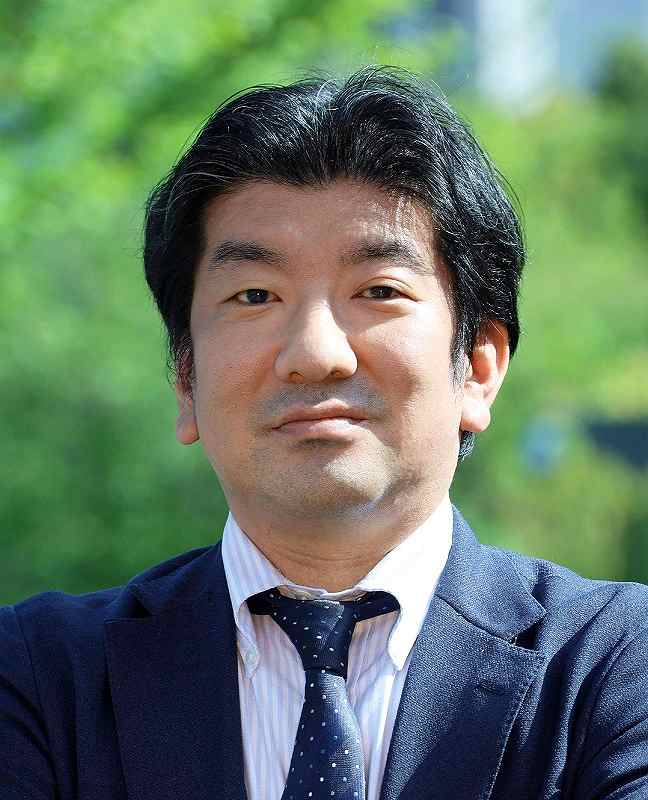
Michitaka Kaiya
Kaiya is a staff writer in the Political News Department of The Yomiuri Shimbun.
Top Articles in Editorial & Columns
-

Riku-Ryu Pair Wins Gold Medal: Their Strong Bond Leads to Major Comeback Victory
-

Reciprocal Tariffs Ruled Illegal: Judiciary Would Not Tolerate President’s High-Handed Approach
-

China Provoked Takaichi into Risky Move of Dissolving House of Representatives, But It’s a Gamble She Just Might Win
-

Flu Cases Surging Again: Infection Can Also Be Prevented by Humidifying Indoor Spaces
-

Japan’s Plan for Investment in U.S.: Aim for Mutual Development by Ensuring Profitability
JN ACCESS RANKING
-

Producer Behind Pop Group XG Arrested for Cocaine Possession
-

Japan PM Takaichi’s Cabinet Resigns en Masse
-

Man Infected with Measles Reportedly Dined at Restaurant in Tokyo Station
-

Israeli Ambassador to Japan Speaks about Japan’s Role in the Reconstruction of Gaza
-

Videos Plagiarized, Reposted with False Subtitles Claiming ‘Ryukyu Belongs to China’; Anti-China False Information Also Posted in Japan







